What is a Mutt Dog? Mutt Facts and Truth
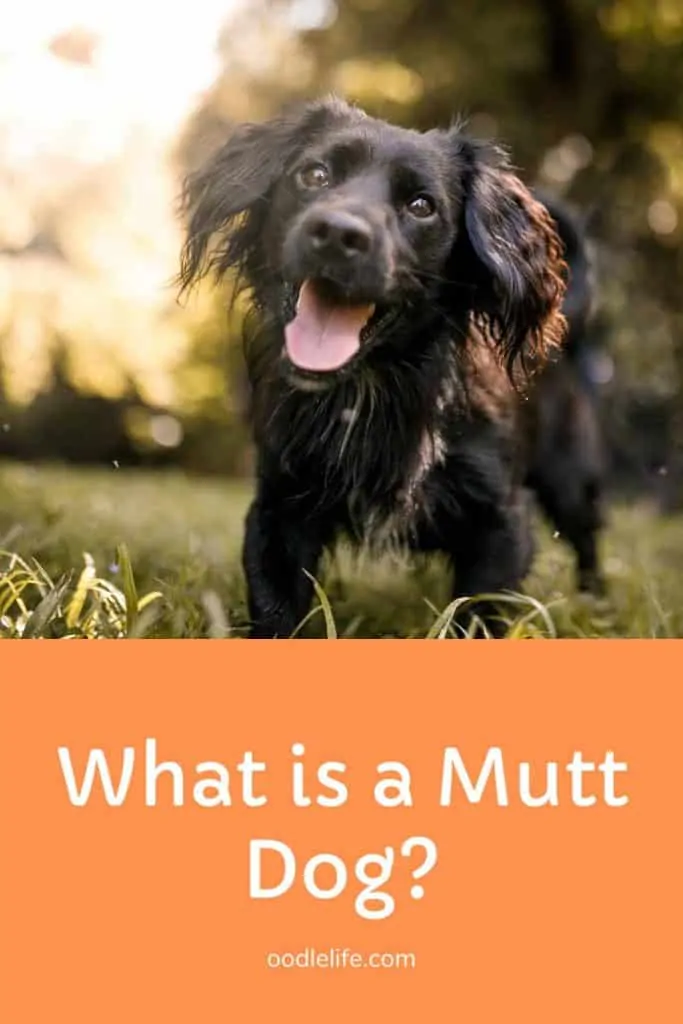
You see them whenever you are at the dog park, those mystifying, waggy tailed creatures that make you scratch your head.
A Jack Russell colored doggy with the body size of a lab? A poodle coated pooch with the short legs of a dachshund? A shaggy Doberman colored dog with a German shepherd’s face?
These mystery dogs are what people call mutts. The word evolved considerably since the 1800’s when it was a derogatory label on an inferior mixed breed dog or a stupid person.
It has come even further today when dog lovers are embracing the term of these unique and beautiful pets.
What is a Mutt?
While crossbreeds such as the famous Labradoodle are a crossbreed of two recognized purebreds, mutts are usually the accidental combination of various breeds. Without much human interference, certain dog breeds have decided to shake up all the familiar shapes, coats, and features of the dog status quo.
Purebreds are dogs with two parents of the same breed registered with a kennel union as being of unbroken descent from the original breeding pairs.
Crossbreeds (or hybrid dogs like Poodle mixes) are the result of pairing two recognized breeds into a new hybrid. So, what about the mutt? Well, the mutt can have such a mixed heritage pool that it is almost impossible to unravel.
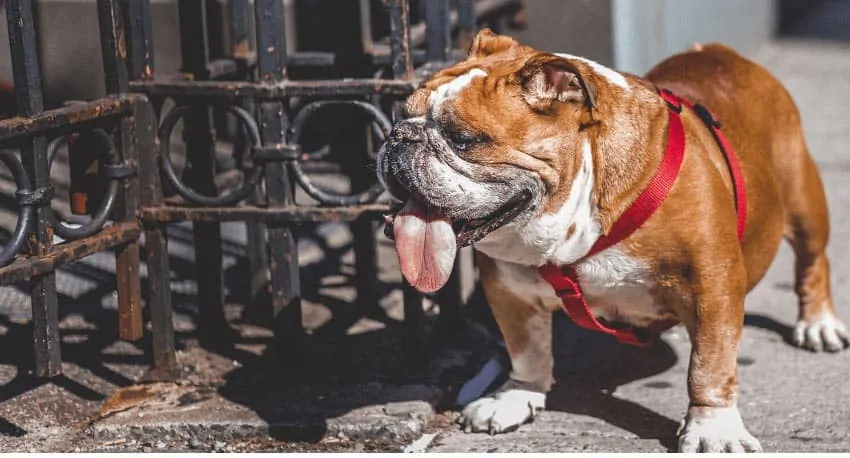
Mutt History
If dog owners of pedigreed dogs want to stick their noses in the air at your loveable mutt, they should keep one thing in mind. Gray wolves and dogs diverged from the same extinct wolf species some 15,000 to 40,000 years ago (Smithsonian).
Scientific DNA evidence from fossils and modern dogs shows that most common breeds today shared a common ancestor 18,500 years ago.
Humans then had a hand in breeding specific characteristics into a dog lineage to create stable forms of a particular breed. So pedigree dogs and they mutt cousins are all technically from the same stock.
Unless you own a purebred wolf, your mutt and your purebred are both the result of thousands of years of selective breeding. All breeds started as crossbreeds at some point in their history.
What Makes a Mutt?
A crossbreed dog might have a father who is a Labrador and poodle mix and a poodle mother and still is defined as a crossbreed NOT a mutt because only two recognized breeds were in the genetic mix.
Mixed breeds or mutts have three of more breeds in their genetic mix (or even more in some cases!)
They are nature’s way of delivering a surprise, once-off pet with personalities that will make you a mutt lover for life.
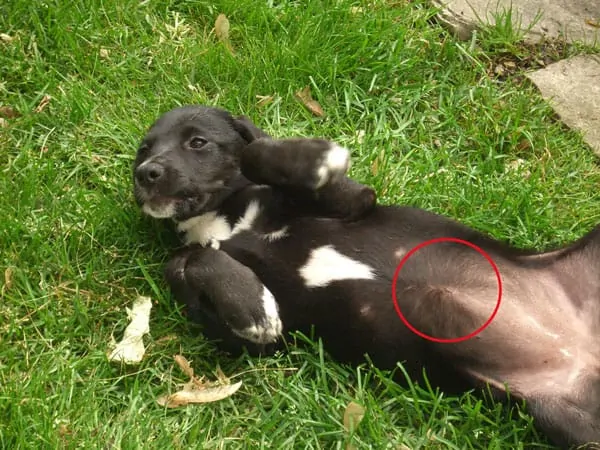
Why Choose a Mutt to be your Pet?
They are One-of-a-kind
Although mutts are found everywhere, your mutt will be genuinely unique. Even within a litter of two seemingly recognizable mixed breeds, you will find that each puppy has its own set of strictly own characteristics.
You may find that your mutt may surprise you with a combination of the best characteristics of all the mixed breeds in their lineage, such as loyalty, affection, and intuition. Best yet, when you approach a shelter, you have a wide array of sizes, personalities, and temperaments to choose from to suit your lifestyle or family.
Mutts have Better Genes
Although it is not definitively proven that mutt breeds are genetically superior to pure breeds, it is commonly noted that mutts can be healthier.
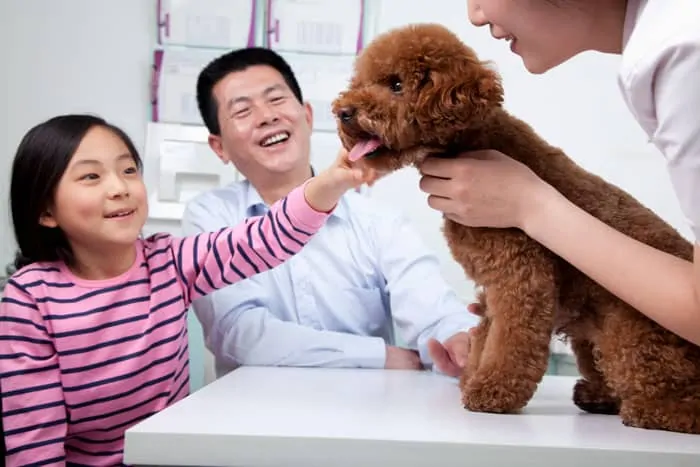
When creating a pedigreed breed, many breeders aim to heighten the gene pool’s characteristics by interbreeding. Interbreeding has an effect of enhancing certain predispositions, so ailments and diseases such as hip dysplasia in German shepherds and patellar luxation or persistent dislocation of the knee cap in some toy/miniature breeds.
Linebreeding has been prevalent in the modern pure breeds ancestor, where dogs are mated with direct descendants such as grandmother and grandson. When certain pedigree male dogs win championships, the dog is bred widely, and his genes spread like wildfire through the breed (whether they are healthy or not.) This situation is called ‘popular sire syndrome.’
Mutts are a collection of randomly acquired genes. They thus are less likely to fall prey to certain inherent disorders of the pedigreed line.
Mutts are Adaptable
Working breed dogs such as border collies have been bred for peak endurance and intelligence to fulfill their role as keepers of the flock. These breeds need constant mental stimulation and exercise to thrive. Owners need to supply some level of satisfaction to this genetic imperative in the breed.
Working dogs bred for various forms of service can become destructive if owners do not meet their needs. These include terriers, pointers, and shepherds.
Your mutt has not explicitly bred for a mental and physical imperative and is more adaptable to work and play. (It must be noted that some mutts carry the genetic impetus of their distant purebred cousins, a family mutt is squirrel hunting mad!)
Mutts are More Affordable
Since you do not have to pay the rather high fees for a pedigree pooch, adopting or buying a mutt makes sense financially. Some dog breeds like a French Bulldog or the giant Bernedoodle can run into thousands of dollars.
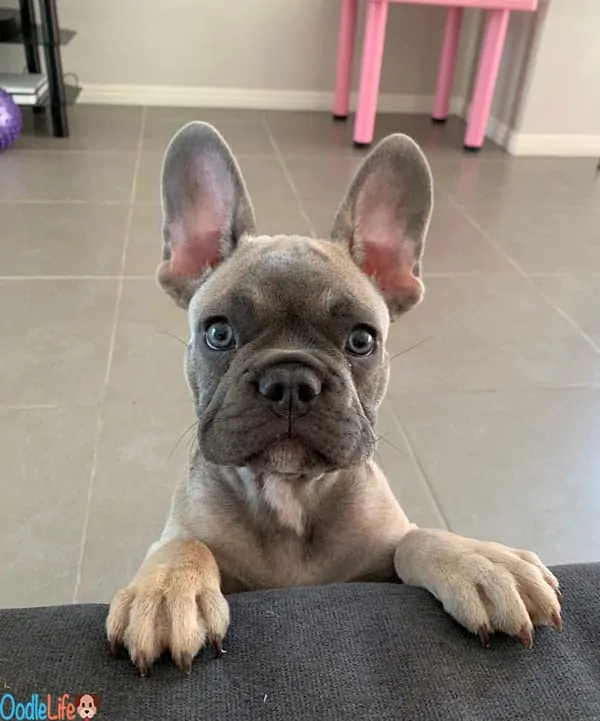
Adoption only includes vaccination, deworming, sterilization, and microchipping. With your hardy mutt genes, you may save on veterinary costs in general in your pet’s later years.
Pure breed dogs can cost you between $800 to 5000 dollars, while most shelters only charge between $50 to $200 for adoption. With the money you save, you can send your pup to puppy school or nose work training classes to make them your perfect sidekick.
You may Save a Life
Indiscriminate breeders and careless dog owners have created a surplus of beautiful hearted dogs seeking love and a forever home. Each time you adopt a dog, you save your pooch, but another dog has space to find someone to love.
Purebred puppies generally live on the property of the breeders. Owners can afford to wait for a buyer or have the facilities to care for the pup at home.
When stray mutts are in overcrowded shelters, the end is often sad, with some beautiful soul losing its life to euthanasia. You get to save a life, but you will be protecting your new best friend.
Mutts can compete in dog trials and be service dogs
Mutts can compete with their snooty purebred cousins in contests such as agility trials through organizations such as NADAC. There is also nothing to stop your furry friend from being a service or therapy dog.
More and more service dog trainers realize the qualities of mixed breed dogs and their capabilities in being of service (We knew that all along, didn’t we?)
Mutts have a Longer Lifespan
Although this is still a point of debate in the scientific circles, it is undoubtedly true in many cases.
Many purebred dogs are known for their shortened lifespans, such as the mastiff, the Great Dane, and the Dogue de Bordeaux. Mutt’s unique genetic mix can extend their lifespans, or at least lessen the breed disposition to short lifespans.
Other cross breeds like the Goldendoodle or Cavapoo can have an incredibly long lifespan.
You can Skip the Puppy Stage
Sometimes you don’t have the time to be at home when your pooch is a puppy, and they need constant care and training. As glorious as the puppy stage is, your furniture and shoes might not agree (or your T.V remote in my case.)
As lovable as puppies are, people you have the option of adopting a dog that is already housebroken and partially trained.
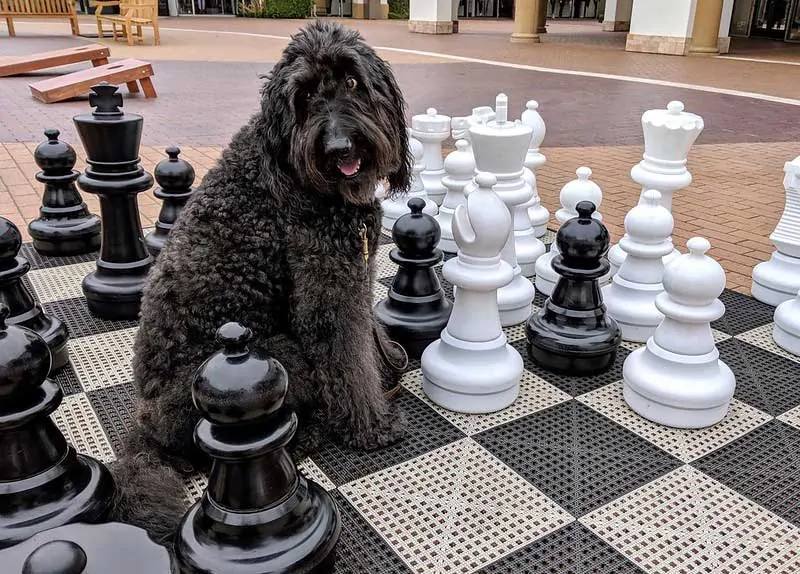
Photo by Bennylover CC-by-SA no modifications
Mutts might Socialize better
There are tendencies in purebred dogs to imprint on one person more than other members of the family. They may also be more difficult to socialize with other dogs, which can be a problem if you like to be out and about with your dog.
Shelter and rescue dogs tend to be more friendly and less territorial than many pure breeds and generally have a sunny disposition.
They are a great conversation piece
How many times have you seen a wiggly little mutt with so many features that you have to ask, just what breed is your pup?
So many times on my walks with a rescue boy Django we were pet sitting, curious dog owners would like to know his history and well, just what he is! He is a rescue and something of a Mastiff cross Shepard cross Boerbul. WE THINK. Not knowing is part of the fun!
You may even find yourself recognizing a mutt from your childhood somewhere, and it always makes for a great ice breaker. Mutts are sometimes a mystery, and people like to hazard guesses to exactly what ancestor they have.
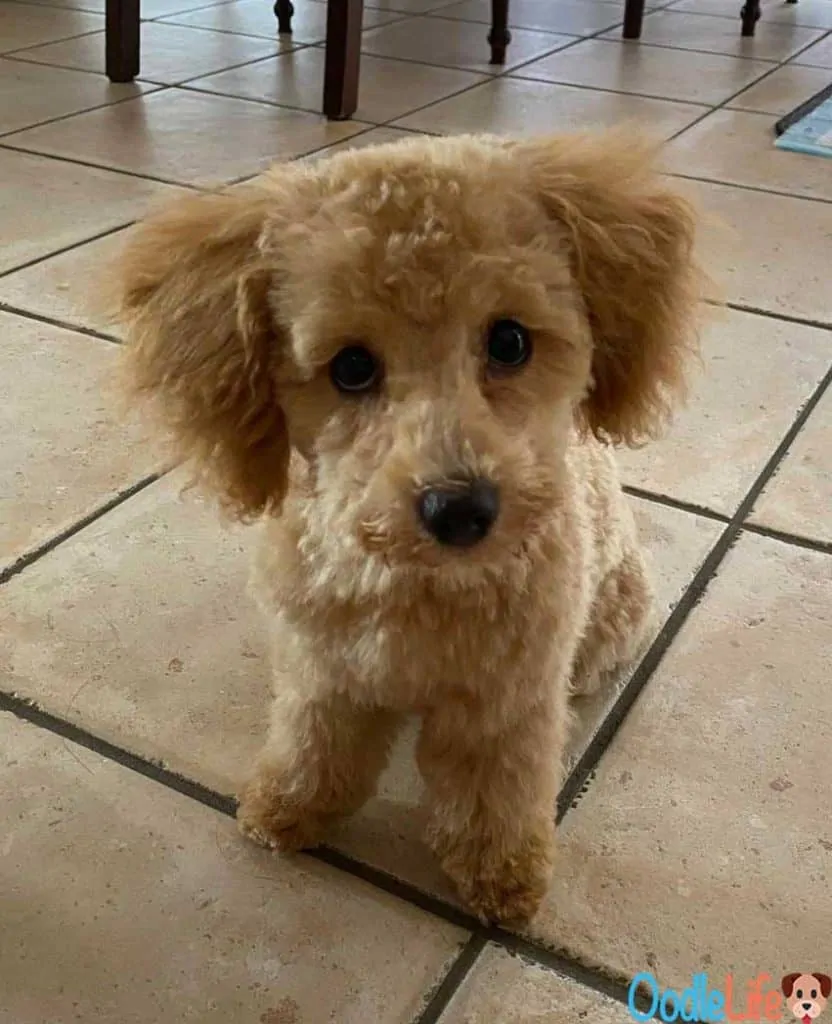
Conclusion
So next time you are looking for a new furry friend, go visit your local shelter and give some unique, one of a kind pooch a home. You will be reducing the incidence of torturous puppy mills and giving a dog a chance at life.
Once you love a mutt, you will understand what makes them an excellent addition to your life. They will surprise you and make you laugh out loud, shaking your head. They are a surprise in a lucky packet of doggy genes, and their personalities and heart are all the pedigree you need.